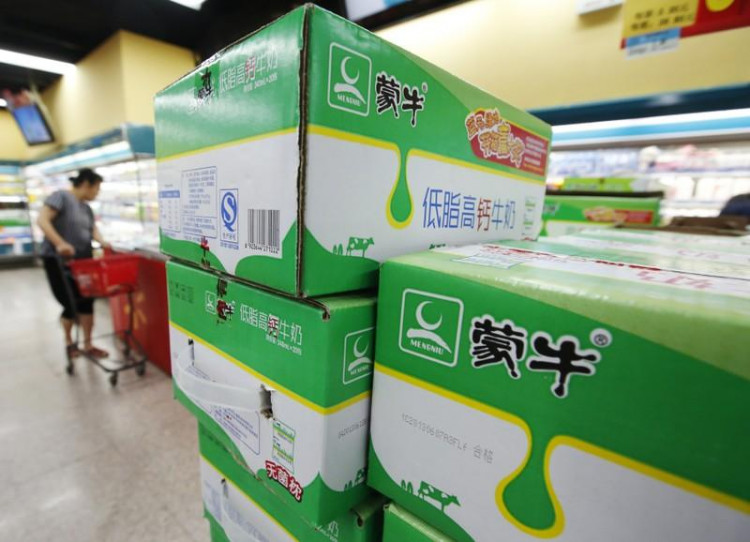Reuters - Australia's government may block China Mengniu Dairy Co. Ltd.'s purchase of some of Australia's best-known milk brands, the Australian Financial Review reported Thursday quoting unidentified sources who blamed "diplomatic issues."
Treasurer Josh Frydenberg has gone against the advice of the Foreign Investment Review Board (FIRB) which was in favor of approving the A$600 million ($430.98 million) deal, the newspaper said.
It will be the first government veto since Australia in July announced its biggest shake-up of foreign investment laws in almost 50 years. That gave the treasurer last-resort power to vary or impose conditions on deals even after FIRB approval or force divestment in the event of a national security risk.
The revision came partly in response to fear that the economic effect of the COVID-19 pandemic would make buying strategic assets easier for cashed-up foreigners.
Australia has called for an international inquiry into the origins of the novel coronavirus first reported in China at the end of last year.
China Mengniu offered to buy Lion Dairy & Drinks Pty. Ltd. from Japan's Kirin Holdings Co. Ltd. in November. It had already FIRB approval to buy infant formula maker Bellamy's for A$1.43 billion. It gained approval from Australia's competition regulator for the Lion deal in February.
In March, Queensland Liberal National Party agriculture spokesman Tony Perrett wrote a letter to Frydenberg about milk supply concerns with the Mengniu deal and stating "grave concern about major food processor brands being purchased by Chinese companies with close ties to the Chinese government."
"Given the increased uncertainty around food security and the need for greater economic self-reliance because of the coronavirus pandemic, there has been a substantial shift in the public's expectation," Perrett said in the letter.
Perrett's office Thursday said a reply from the assistant treasurer was received in July saying Australia's need for investment would be balanced with upholding the national interest.
Still, the treasurer's opposition to the deal would be surprising given it was between two foreign companies and involved neither land nor sensitive assets, a person close to the companies said.
Australia joined other countries criticizing a security law that China imposed on Hong Kong. China has imposed import tariffs on Australian barley and suspended some beef imports. In June it advised students and tourists from China to avoid traveling to Australia because of racial discrimination. It has also launched an antidumping investigation probe into imports of Australian wine.
China investment in Australia more than halved in 2019 to $2.4 billion and the number of deals is likely to keep falling this year as a result of the diplomatic tensions and the coronavirus outbreak, bankers said.






